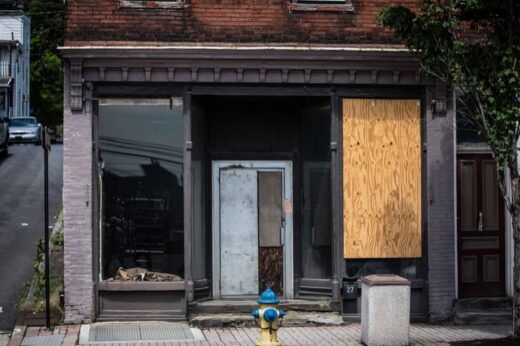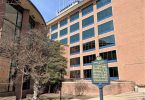By Peter Hall | Pennsylvania Capital-Star
Commercial properties, both historic and merely outdated, present challenges that can stymie efforts to redevelop them, keeping them vacant and depriving communities of the tax revenue they once provided, a Pennsylvania House committee heard Wednesday.
Legislation proposed by lawmakers from districts with struggling downtown main streets and “zombie” suburban shopping centers would give municipalities resources and provide developers incentives to make those properties productive again.
Introduced by state Rep. Joshua Siegel (D-Lehigh), House Bill 1799 would require the state Department of Community and Economic Development (DCED) to establish an advisory board to provide guidance for municipalities on redeveloping shopping malls into affordable housing and other mixed-use space.
“These are once-in-a-lifetime redevelopment opportunities for communities. We want to make sure that they get it right,” Siegel told the House Local Government Committee on Wednesday.
Shopping malls numbered about 25,000 across the United States in 1986, according to CapitalOne Shopping Research, and have closed at a rate of 581 a year through 2017. Shopping malls have the highest vacancy rate – 8.7% – compared to other types of retail space such as neighborhood centers, strip malls and general retail, according to commercial real estate firm Jones Lang LaSalle.
More than a dozen malls across Pennsylvania fit the description of a dead mall – either demolished entirely or lacking an anchor store that serves as main attraction to the property, PennLive.com reported in 2019.
Among malls that are not shuttered, “the majority of them are not in a great state,” Justin Shoemaker, executive vice president of Landmark Commercial Realty in Camp Hill, said.
As American shopping preferences have changed, consumers no longer want to park and walk inside an indoor mall to visit a single store. Retailers increasingly prefer locations with individual entrances and good visibility from highways and the advantages malls once offered are no longer present, Shoemaker said.
With high legacy costs, such as taxes and utilities, owners find themselves burdened with properties that are difficult to use or sell. And the cost to adaptively reuse or retrofit the buildings is substantial and often beyond the capabilities of owners, Shoemaker said.
Kim Shindle, vice president of communications for the Pennsylvania Association of Realtors, said the association supports the mall redevelopment legislation and looks forward to working with Siegel, who she described as a first-term lawmaker with a strong interest in housing policy.
Siegel said his bill “recognizes that some jurisdictions municipalities do not have the technical expertise or perhaps the planning capacity to properly rebuild these sites in a way that would be most economically efficient and lucrative for their communities.”
It would also allow municipalities and school districts to grant tax abatements for 10 years or 15 years if the redevelopment project includes a minimum number of affordable housing units, renewable energy facilities, open space, recreational facilities, electric vehicle charging, access to public transit or is covered by a project labor agreement.
“It’s a recognition and acknowledgement of the considerable financial risks and the considerable financial investment it takes to turn these properties around,” Siegel said, adding that many shopping mall sites exceed 50 acres and require investments of hundreds of millions of dollars to repurpose.
The bill passed 14-11 along party lines, with Republican lawmakers in opposition.
House Bill 1573, introduced by Rep. Joe Cerisi (D-Montgomery), would create a two-year grant program administered by the DCED to assist with the renovation and redevelopment of historic buildings that do not conform to modern building codes.
“As we look to revitalize businesses and Main Street USA rather than rebuild Main Street USA, we need bills like this for economic impact,” Ciresi said. “This bill will help us to keep those historic buildings that keep uniqueness in town.”
The cost of making health and safety modernizations to historic buildings can be prohibitive for many owners, Ciresi said.
Peggy Lee-Clark, executive director of Pottstown Area Economic Development Inc., said installing a sprinkler system in a 5,000-square-foot building can cost $120,000.
“This all started because developers were coming to us with beautiful facades with the insides all in shambles,” Lee-Clark said, adding that exceptions to the building code aren’t available.
The program would provide up to $500,000 to bring mechanical, electrical, plumbing, and fire protection systems up to code. The grants can also be used to make improvements to entrances to make buildings more accessible for people with disabilities.
To qualify for a grant, a building is required to be listed on the National Register of Historic Places or contributing as an element of a listed historic district.
The bill passed with a 24-1 vote. Both bills now go to the full House for consideration.
Pennsylvania Capital-Star is part of States Newsroom, a network of news bureaus supported by grants and a coalition of donors as a 501c(3) public charity. Pennsylvania Capital-Star maintains editorial independence. Contact Editor Kim Lyons for questions: info@penncapital-star.com. Follow Pennsylvania Capital-Star on Facebook and Twitter.









